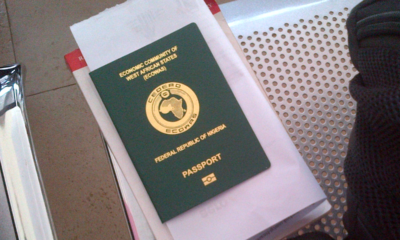The United Arab Emirates (UAE) on Wednesday, said Nigeria remained the largest economy in Africa.
This was contained in a statement signed by the Embassy of UAE in Abuja and made available to the News Agency of Nigeria (NAN).
It stated that the Embassy had commenced a series of trade and investment promotion activities aimed at bolstering the bilateral trade and investment volume between Nigeria and the UAE.
NAN reports that the trade promotion initiative, was coordinated in collaboration with the UAE International Investment Council (UAEIIC), the UAE Ministry of Economy and the Federal Ministry of Industry, Trade and Investment in Nigeria.
According to the embassy, the initiative focuses on attracting key industry stakeholders and investors across all sectors in Nigeria and the UAE in a bid to develop and explore future trade opportunities.
“Nigeria has been chosen among the 34 selected countries globally participating in the initiative because of its pivotal position as a top investment market in the West African region and its overall economic influence in Africa,” said the statement.
The UAE Minister of State, Ministry of Foreign Affairs and International Cooperation (MOFAIC), Sheikh Shakhboot Al Nahyan, expressed satisfaction with the level of trade, political and cultural partnership that existedbetween both countries.
“UAE is the ninth largest exporter to Nigeria globally, the UAE continues to see Nigeria as the largest economy in Africa and also an important, trusted partner.
“For decades, both countries have continued to nurture strong bilateral relations, particularly in the areas of trade and investment.
“To date, we remain Nigeria’s largest trade partner in the Middle East region, accounting for 35 per cent of Nigeria’s total trade with the region,” he said.
He added that over the past few years, there had been high-level political exchanges amid continuing mutual trust between both countries, which led to the signing of several key agreements aimed at solidifying overall bilateral relations.
“It is my desire that the existing relationship continues to grow as the global economy gradually recovers from the effects of the COVID-19 pandemic.
“Valued at 1.4 billion dollars in 2019, I willlike to see this increase and look forward to working toward this in a mutual beneficial manner, ” he said.
In his remarks, The UAE Minister of State for Foreign Trade, Dr Thani Al Zeyoudi, was confident that the UAE/Nigeria ties would continue to grow in areas of trade and investment.
“UAE and Nigeria relationship is witnessing a positive development dominated by cooperation, respect and mutual interests.
“The two countries are enjoying growth rates of bilateral trade, while the volume of non-oil trade exchange reached 1.45 billion dollars by the end of 2019.
“Our goal is to increase non-oil bilateral trade based on huge trade and investment potential and promising opportunities in the two countries’ markets and vital sectors,” he said.
He also added that the Embassy actively partnered with several Nigerian government ministries, parastatals and the private sector in the UAE and Nigeria in the execution of media campaign of the trade and Investment promotion.
The Nigerian Minister of Industry, Trade and Investment, Otunba Niyi Adebayo, reaffirmed Nigeria’s readiness to make UAE a top destination for exports because of its strategic position in the middle east region.
He said: “Moving forward, we hope to further strengthen our economic ties for economic development with common interest for both countries.
“We reaffirm Nigeria’s readiness to make UAE our preferred leading export markets because of her positioning as a strategic global and regional trade and investment hub.”
The Nigerian Minister of Mines and Steel Development, Arch Olamilekan Adegbite, said, “Trade between Nigeria and UAE had been on for a long time, albeit informally.
“I look forward to this collaboration to enhance what has been and to open up new vistas.”
The UAE Ambassador to Nigeria, Dr Fahad Altaffaq, underscored the need for both countries to jointly expand the spectrum of trade activities in the wake of the COVID-19 pandemic.
“While approaching the 40th anniversary of UAE-Nigeria relations, which began in 1982, we plan to continue providing platforms where UAE and Nigerian businesses can connect to identify ventures and opportunities particularly in emerging sectors.
“This includes, Artificial Intelligence (AI) FinTech and Space Exploration. The UAE is a top global investment hub and I encourage Nigerian investors to take advantage of the wide trade and investment opportunities,” he said.

 Forex3 weeks ago
Forex3 weeks ago
 Naira3 weeks ago
Naira3 weeks ago
 Billionaire Watch3 weeks ago
Billionaire Watch3 weeks ago



 Naira3 weeks ago
Naira3 weeks ago






 Naira3 weeks ago
Naira3 weeks ago




 Naira2 weeks ago
Naira2 weeks ago






 Naira2 weeks ago
Naira2 weeks ago




 Naira4 weeks ago
Naira4 weeks ago
























